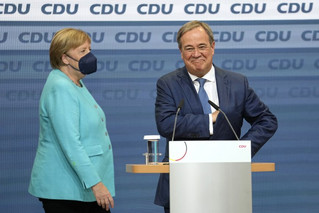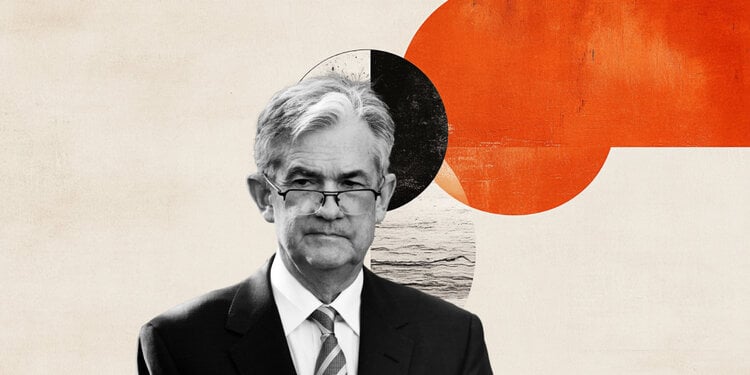The battle continues on German elections, with his Social Democratic Party SPD to confirm as time goes on that it will be the party that will finish first.
According to the results so far, with the Social Democratic Party (SPD) and the Christian Union (CDU / CSU) abstaining less than two units, are declared painful, possibly long negotiations for the formation of the next co-operation government.
Already, their candidate CDU / CSU Λάρμιν Λάσετ turns a blind eye to the possibility of forming a government “Jamaica” (CDU / CSU, Greens, FDP), the only form in which the chancellor will come from the Union, while the Social Democrat candidate Olaf Solz talks about a “lantern” government (SPD, Greens, FDP).
In any case, the election result is characterized triumph for Olaf Solz, who managed to “detach” the SPD, to bring it back to the top. Gathering 26% of the vote, the party records an increase of 5.5 points from 2017 while on the contrary, for the Christian Union, no matter how the result is read, 24.5% is a very low percentage, 8.4 points lower than the result of 2017.
They are followed by the Greens with 13.9% and an increase of five points, who managed to make it almost impossible to form a government without their participation, as well as the Liberals (FDP), who were strengthened by only one point, but are evolving into tomorrow’s regulator. majority. The Left is fighting for its stay in the Bundestag and for the time being seems to be winning it, even with only 5.2% (-4.2% from 2017).
Investigative contacts are likely to begin today, as both Mr Lassett and Mr Soltz have called for next government to be in place before Christmas. In 2017, however, it took 171 days for the CDU / CSU and SPD to agree to form another “grand coalition”, only after the “Jamaica” coalition talks collapsed, at the initiative of Christian Lindner.
German election: What it cost Armin Lasset – The travels
For Head of the Public InstituteHerman Binkert, who cost Armin Lassett the most, laughed during federal President Frank-Walter Steinmeier’s visit to the flood-hit region this summer. According to a poll by the Forsa Institute on behalf of n-tv, 52% believe that Mr. Lassett was the “wrong” candidate, while 25% believe that there was a general dissatisfaction with the Christian Union, which suffered decay after so many years in power. In addition, the (impressive) 62% hold Mr. Lassett responsible for the party’s negative result in yesterday’s election.
In terms of voter movements, the Union lost about 1.36 million to the SPD, which also won, among others, 590,000 voters of the Left and 320,000 voters who were either young or so far absent. The Union lost 900,000 voters to the Greens and 340,000 to the FDP. 23% of young voters voted for the FDP and 22% for the Greens. The newspaper Handelsblatt in a comment she jokingly spoke of “a fourth chancellor”, explaining that each of the two major popular parties won just a quarter of the electorate. “Over 70% did not vote for the party of the future head of government. “The two major parties are exhausted in terms of content and staff,” he said.
During the so-called Round the ElephantsMr Lassett said he was not happy with the result, but added that he would try to form an alliance that would “allow all” participants. “Not to break promises to their voters.” CDU General Secretary Paul Tsimiak spoke of a “coalition of the future”.
German elections: What Olaf Solz said
SPD candidate Olaf Soltz said his party was a great success and that “Voters have shown that they want a change of government and a chancellor himself.” The next day, FDP leader Christian Lindner, one of the regulators, reiterated that the greatest connection would be with the “Jamaica” coalition. During the discussion, he even sent the first message to the Greens: first of all he wants to talk to them.
In practice, the German Constitution does not preclude the formation of a government by the second party. In 1980 the Christian Union won, but it was the FDP that eventually sent Helmut Schmidt, not Helmut Kohl, to the chancellery. In this process, however, the Greens will now have a key role to play, as they will also be called upon to decide who they want as chancellor.

THE Christian Social Union (CSU) leader Markus Zender, Despite losing six points in Bavaria to 32.8% – the party’s worst result in 70 years – he told Bild that the mandate of the voters was first and foremost a “no” to the SPD-Green government. Left and “yes” to “bourgeois alliance”. “My appeal is to the Liberals and the Greens, to join a coalition under the Christian Union. For this to happen, everyone must get out of their seat belts. “We need an alliance for real renewal and modernization, and I do not think that with the SPD such a thing would be possible,” Zender insisted.
On the SPD side, Vice President Kevin Connert, who was able to remain silent for most of the election period, returned last night: after speaking of his party’s “big return” to the top, he said he did not want to see the Christian Union in the next government and that Olaf Solz should become chancellor. However, he reiterated his attack on FDP leader Christian Lindner, whom he had just described as a “fanatic” the day before yesterday. “I did not want to judge him as a person, I criticized his economic theorem – voodoo, which does not seem serious to me,” said Mr. Kounert, reiterating that any program agreement with the participation of the SPD will be at the discretion of its members. , stating at the same time that it is up to the leadership and the presidency to decide each time whether wider legitimacy is needed.
SPD wins state matches in Berlin and Mecklenburg-Pomerania
Victory of the Social Democratic Party (SPD) in its state Berlin with 22.2% (+ 0.6% compared to 2016) show the results so far, as broadcast by AMPE, with the Greens following with 19.4% (+ 4.2%). The Christian Democratic Party (CDU) wins 18.8% (+ 1.2%), while the Left falls to 13% (-2.6%), the Alternative for Germany (AfD) to 7.6% (- 6.6%). The Liberals (FDP) rise to 7.2% (+ 0.5%).
These percentages are not enough for an SPD-Greens coalition government, so it is likely that the state of Berlin will continue to be ruled by an SPD-Greens-Left coalition. The leading candidate of the SPD was the former federal Minister of Family, Francesca Gifai.
In Mecklenburg-Pomerania, Social Democrat (SPD) Prime Minister Manuela Svesing emerged, as expected, the winner of the state elections with 40% (+ 9.4% since 2016) and will now have to choose a new government partner.
Until now, the SPD ruled with the Christian Democratic Party (CDU), which yesterday received 13% (-6%). Alternative for Germany (AfD) emerged as the second force with 17% (-3.8%). They are followed by the Left with 11% (-2.2%) and the Greens with 7% (+ 2.2%).
Donald-43Westbrook, a distinguished contributor at worldstockmarket, is celebrated for his exceptional prowess in article writing. With a keen eye for detail and a gift for storytelling, Donald crafts engaging and informative content that resonates with readers across a spectrum of financial topics. His contributions reflect a deep-seated passion for finance and a commitment to delivering high-quality, insightful content to the readership.







